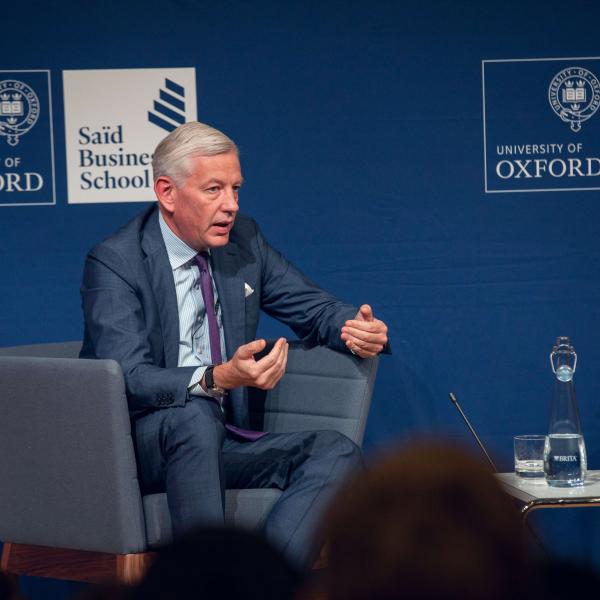About the event
Dominic Barton talks about four key leadership lessons gleaned from conversations with CEOs
Dominic Barton is Global Managing Partner Emeritus of McKinsey & Company and the latest Visiting Professor at Saïd Business School. He joined Dean Peter Tufano and nearly 300 MBA students to discuss the leadership lessons he learnt while he himself was ‘in the arena’.
As Tufano observed, some of the lessons sound ‘blindingly obvious’ in theory, but are perhaps all too easily forgotten in practice.
Find and invest in your people
When I became Global Managing Partner of McKinsey and Company I made myself a rule that I would talk to two CEOs or leaders every day. I would ask them two questions: what would you teach your younger self, and what are the three issues that excite you or worry you?
Over nine years I think I have spoken to 3,200 leaders, and something I heard consistently was that they would have advised their younger selves to ‘move people faster’. They would say that they took too long to move people who weren’t performing, and that they didn’t give others opportunities soon enough: they should have moved them up even if they weren’t quite ready. Many people said simply that they should have spent more time with people.




